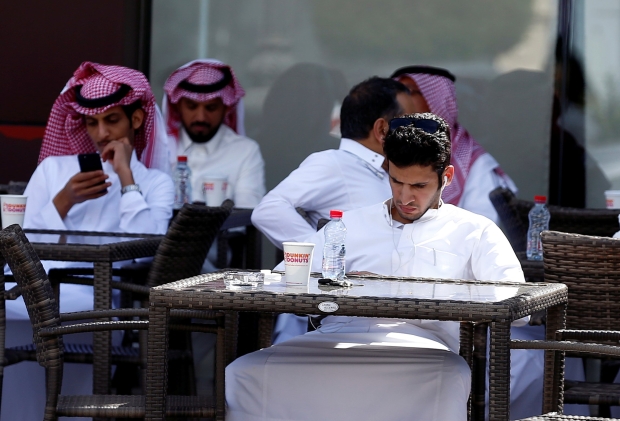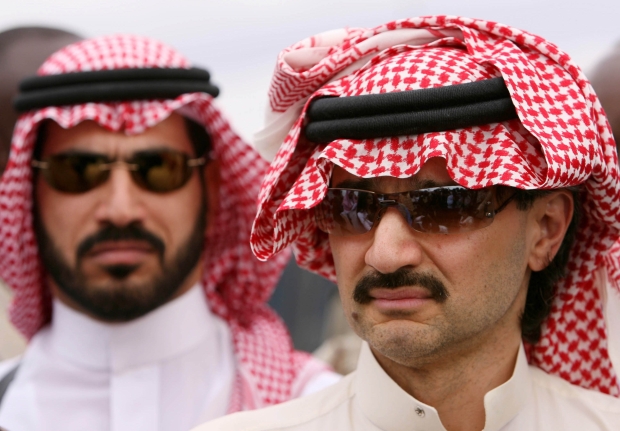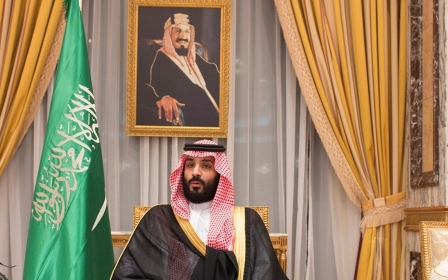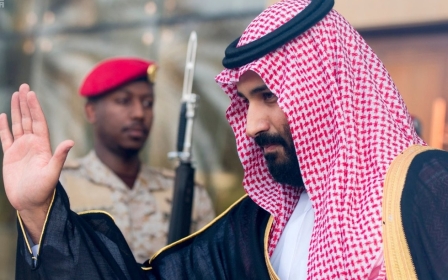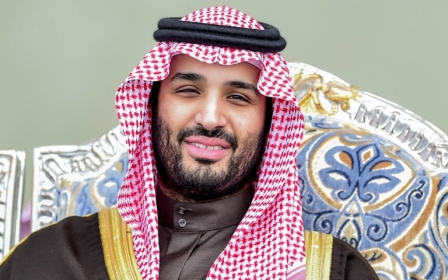It feels like a battlefield these days in Saudi Arabia
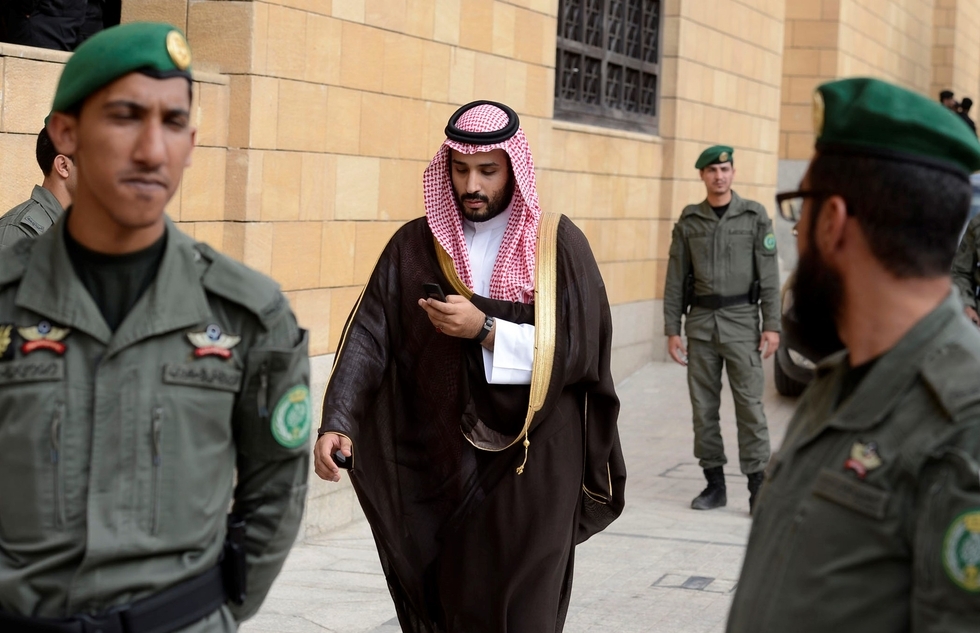
In a brief video clip that circulated on Saudi social media last week, Crown Prince Mohammed bin Salman described his campaign on corruption by saying: "I assure you anyone involved in corruption will not be spared, whether he is a prince or a minister or anyone".
A decree was issued establishing "the supreme committee" to investigate corruption. Hours later a massive arrest campaign took place and took the country by surprise.
Bin Salman's purges, however, can never be viewed as a correctional, pro-reform, or anti-corruption move as the crown prince would like to deceive the public into believing. This is a power-hungry rivalry for the throne that is being framed as an anti-corruption campaign.
Bin Salman's personal wealth?
If Mohammed bin Salman was a man of principle, then he should declare his personal wealth along with that of his father, King Salman, and the rest of his direct family (brothers and sisters). The Salmans, too, have accumulated a wealth measured in hundreds of billions of dollars over the years.
King Salman has been repeatedly accused of corruption and mismanagement by members of the Saudi royal family. Prince Bandar bin Mohammed bin Abdulrahman, a member of the Saudi royal family, hinted in many of his videos on YouTube at the charges of corruption against Salman himself and his misuse of public trust.
Mohammed Bin Salman reportedly purchased a yacht worth hundreds of millions of pounds sterling. Additionally, MBS is yet to account for the one-plus trillion Saudi riyals ($293bn) that has gone missing under his and his father's oversight.
It feels like a battlefield these days in Saudi Arabia but it certainly has nothing to do with fighting corruption
While the 34-year-old crown prince is trying to frame himself to the Saudi public and the West as an advocate of real positive change, a closer look shows that the princes and ministers were sacked or arrested precisely because MBS considers them to be a threat to his ambitions to be king.
For example, Prince Al-Waleed bin Talal has seen himself as a potential candidate for the top job in the country. He reportedly said he "cannot wait to be king".
Thus I don't know how else we can see his and other arrests other than as part of an internal political struggle.
Ibrahim Al-Assaf, the former minister of finance who is also under arrest, was viewed by MBS as an extension of Al-Waleed's influence. After all, they became relatives when Al-Waleed's son, Prince Khaled bin Al-Waleed, is married to Al-Assaf's sister.
Similarly other businessmen like Saleh Kamel who, while not a candidate for the top job, is still seen as a member of the camp of Prince Nayef and his sons, including the former crown prince Mohammed bin Nayef. Kamel is believed to be running investments on their behalf.
For instance, he is the chief contractor of the ministry of interior's traffic violations surveillance system, known as Saher. Kamel was probably still occupying that post until his arrest last night. The system has reportedly raised astronomical amounts of cash over the years for the Ministry of Interior (ie Prince Nayef and his son Mohammed bin Nayef) and its contractor, Kamel himself.
Crushing political opponents
Thus this latest move is more seen in the context of crushing MBS's political opponents who could at any stage threaten or establish themselves as potential rivals to what we may call the emerging "Al-Salmaniya" state.
It is part of an internal power struggle within the Al-Saud family since the door was opened for the second generation of the family to assume the highest ranking post. They all felt that they had an equal chance to occupy the highest post. Clearly however Bin Salman is determined to send every one of them a clear message in this regard.
It feels like a battlefield these days in Saudi Arabia but it certainly has nothing to do with fighting corruption.
Salman and his son are narrowing down the spheres of power that has been traditionally distributed among their family members
This takes us to the other significant implication of the arrests which concerns the distribution of power among the Al-Saud family. For example, during the rule of King Fahd, he and his sons controlled the executive powers in the state. Meanwhile, the king's brother, then prince Abdullah, was the commander of the National Guard.
This was an exclusive arena for Abdullah and his sons to assume more power as a result.
The same can be said about Prince Sultan whose domain of power was the Ministry of Defence while Prince Nayef's was the Ministry of Interior. The king and the three princes were traditionally the dominant centres of power in the Saudi royal family over the past few decades.
These princes were then able to appoint their sons to their posts to ensure the power centres within their closed circles. This meant for instance that Abdullah became a king while Sultan and Nayef were waiting in line for their turn. Salman was out of the picture. Salman was then "only" a governor of the Riyadh province.
He had no real "armed power" at his command. Perhaps this explains in a way why he and his son feel somehow inferior to their other brothers and cousins.
They saw them grow more influential and to enjoy exponential wealth and political power. That maybe in a way provides a psychological explanation for recent arrests.
Salman and his son are narrowing down the spheres of power that have been traditionally distributed among their family members in order to retain all power in their hands. So when Mohammed bin Nayef was deposed from his position, the Ministry of Interior was then stripped of all its armed powers.
Soon after the removal of MBN, the king merged all the forces that were under the Ministry of Interior into a new body, "the Commandment of National Security". The new body is directly linked to the king and his son alone.
The only remaining figure with significant power then was Prince Mutaib bin Abdullah. He was the last obstacle in the way of Mohammed bin Salman's ascent to the throne. Mutaib as it seemed was not willing to give up without a fight. He did not accept similar offers to give up his role as the minister of the National Guard as did his cousin Mohammed bin Nayef.
A struggle for the throne
The death of Prince Mansour bin Miqrin could be seen within the same power struggle scenario. This is a unique and unprecedented accident in the kingdom's history taking place at a very crucial moment.
It is dangerous for Saudi Arabia as a country to have its high-ranking officials advancing in positions and assuming power through conspiracies. This should not be the mentality and behaviour of statesmen.
Moreover, MBS, or any person of authority for that matter, must understand that they cannot be selective in their application of the law. If they consider corruption to be a crime then everyone should be subject to the same standards.
Finally, whoever might ascend to throne in Saudi Arabia must fully understand that this generation cannot be merely brainwashed by state propaganda. These arrests are not concerned with corruption. The Saudis know that all too well and they are not buying the propaganda no matter how it is framed.
What is going on is a political struggle for the throne.
- We are not sharing the identity of this author for his/her own safety.
The views expressed in this article belong to the author and do not necessarily reflect the editorial policy of Middle East Eye.
Photo: Saudi Arabia's Prince Mohammed bin Salman bin Abdulaziz al-Saud arrives for the funeral of Prince Badr bin Abdul Aziz, former deputy commander of the National Guard at Imam Turki bin Abdullah Mosque in Riyadh, 2 April 2013 (Reuters)
New MEE newsletter: Jerusalem Dispatch
Sign up to get the latest insights and analysis on Israel-Palestine, alongside Turkey Unpacked and other MEE newsletters
Middle East Eye delivers independent and unrivalled coverage and analysis of the Middle East, North Africa and beyond. To learn more about republishing this content and the associated fees, please fill out this form. More about MEE can be found here.



